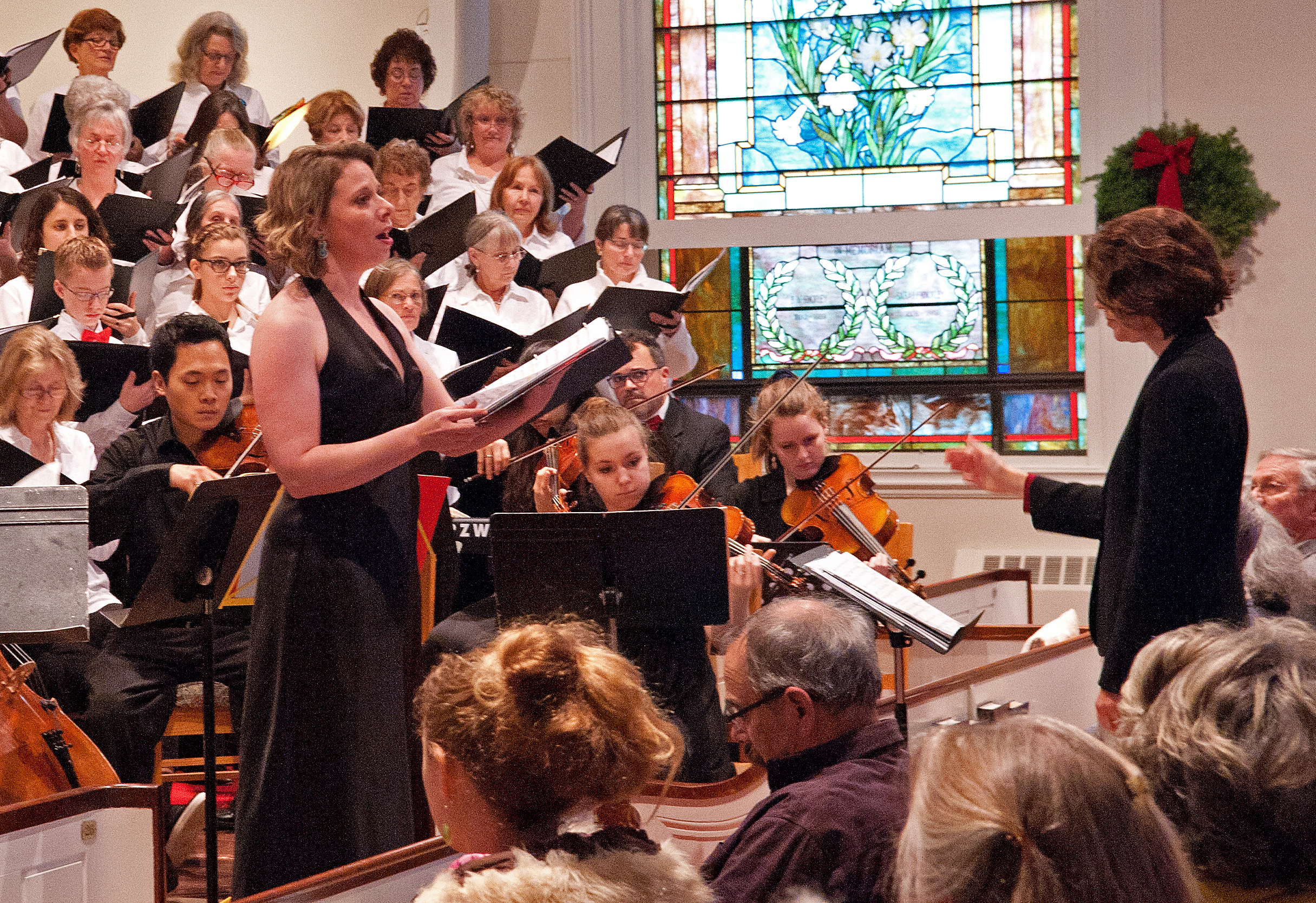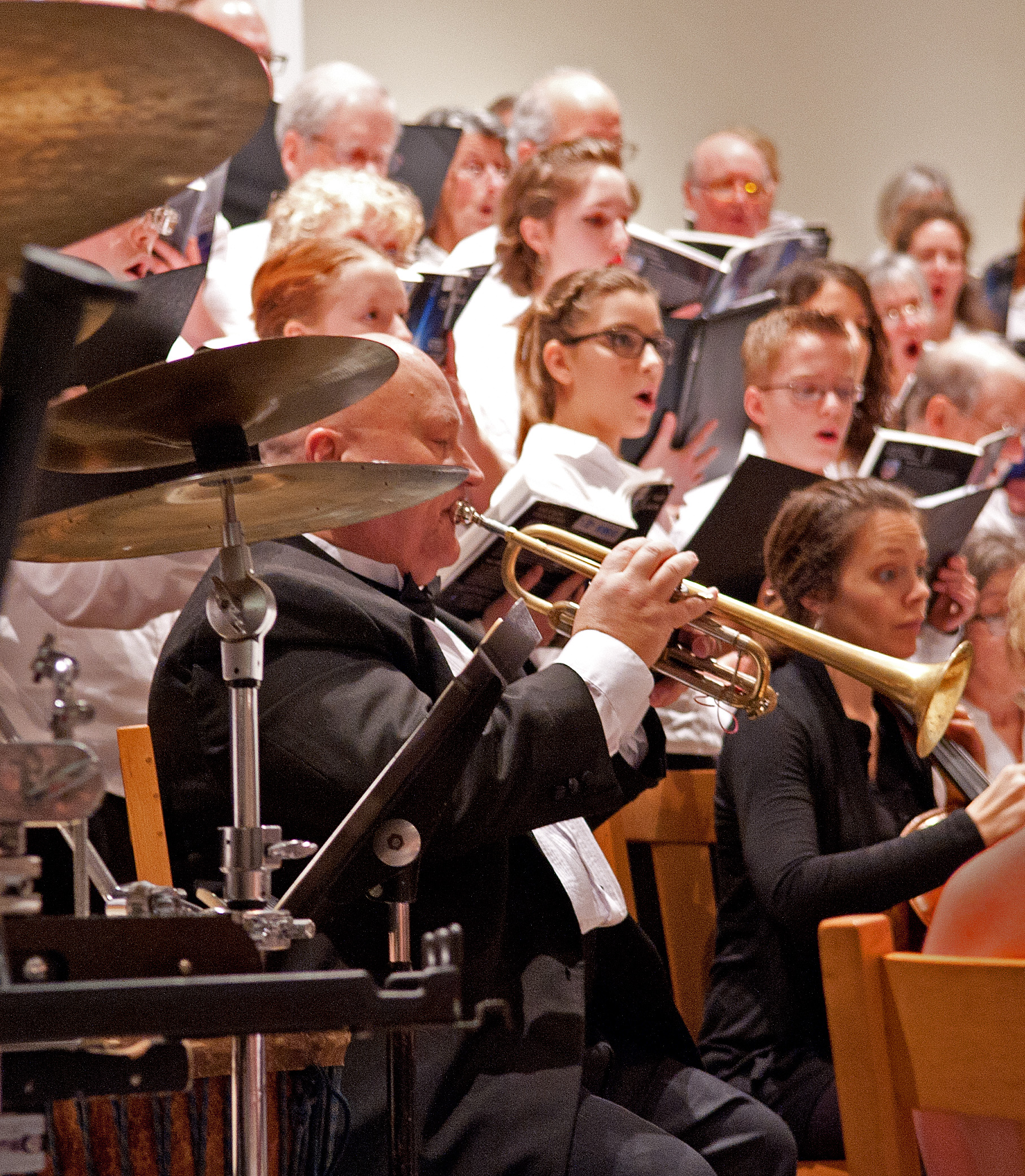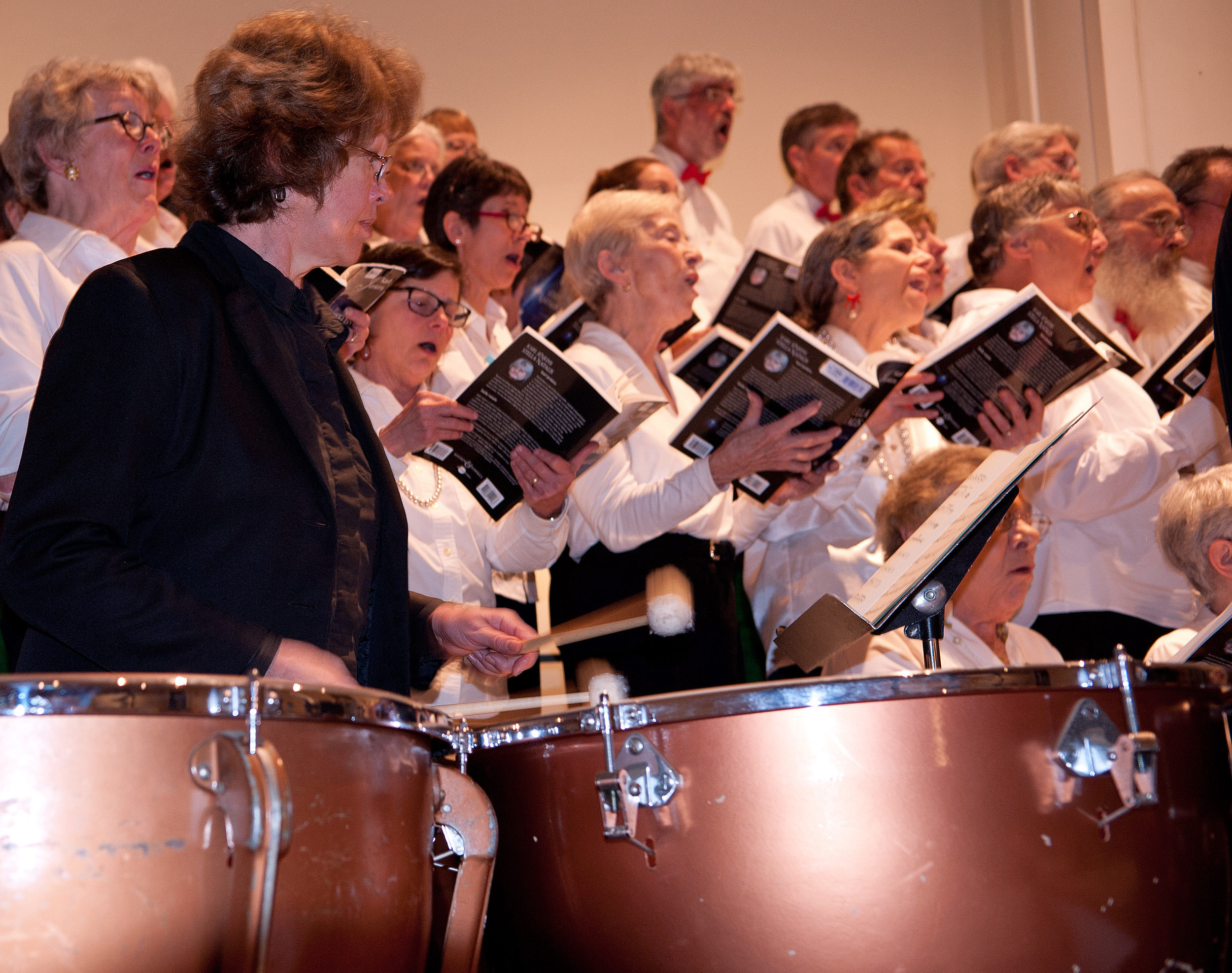In Blue Hill, Maine
The beauty of December on the Blue Hill Peninsula is a secret that is well kept by those who would rather not spend this special time with hordes of strangers. The beauty is not only in the sights of a rocky coastline and timbered hills in the often golden winter light. It’s also in the sounds that can be heard here.
It’s the Christmas and winter solstice season – the historic time in Western cultures for music that ranges from the silly to the sublime. And, this area has a strong heritage of musical excellence, with no shortage of accomplished singers and other musicians. This evening, some of those musicians will treat us to the sublime.
The Bagaduce Chorale
We’re packed into the First Congregational Church on Tenney Hill to hear one of the three performances of the winter program of The Bagaduce Chorale, which is named after a nearby river. The regionally renowned Chorale has almost 100 audition-tested singers who perform only two programs a year, one in winter and other in spring. Much of the rest of the time, the Chorale rehearses.
Bronwyn Kortge
The Chorale Director is Bronwyn Kortge, one of the most animated and engaging conductors you’ll ever see. The Chorale's piano accompanist is the accomplished Douglas Beck. Other accompanists are added as a program requires.
The two-and-one-half-hour program mostly contains contemporary choral works. It begins with six movingly beautiful pieces that glorify love and peace in the broadest sense: Festival Gloria by Craig Courtney (2014); Winter’s Peace by John Purify (2012); Sanctus by Randall Johnson (2011); Serenity by Ola Gjeilo (2012); Christus Natus Est by Cecilia McDowall (2002-2003), and This Christmastide by Donald Fraser with lyrics by Jane McCulloch (1988).
Men Only Sing
After an intermission, there is an audience sing-along, which Ms. Kortge begins with a performance reminiscent of the old Victor Borge comedy/music routines.
Facing the audience, Ms. Kortge takes on the persona of a football referee. When she wants the audience, alone, to sing part of a piece, she crouches and juts out both her arms straight toward the attendees; when she wants the Chorale to sing alone, it’s one arm shot backward behind her, pointing to the Chorale while still facing the audience; for women only, it’s a dainty primping of the hair; for men only, it’s an Arnold Schwarzenegger biceps flex with both arms swiftly curled up to make muscles. Thus, while we laugh, Ms. Kortge energetically directs everyone in the room in a uniquely rollicking version of Twelve Days of Christmas. Then, everyone together sings moving versions of Silent Night and Hark the Herald Angels Sing.
Next is the principal work of the program: Stella Natalis (Birth Star) by Karl Jenkins with some lyrics by his wife, Carol Barratt (2009). This 12-movement piece celebrates winter, the sleeping child, peace, and thanksgiving in varying rhythms and texts. In addition to Ms. Barratt's lyrics, the texts contain poetry, parts of the Old Testament, references to Hindu gods, and even Zulu words.
Stella is held together by intricate and wide-ranging soprano passages, sung beautifully by Anne Leonardi-Merchant, an accomplished Maine soloist. It’s also peppered with very difficult trumpet and cornet trills and fanfares, played with great authority by William Whitener, co-principal trumpeter of the Bangor Symphony. Some movements are filled with war-like percussion, led resoundingly by Lynette Woods on tympani. Throughout, the voices of the Chorale surge in and out, sometimes a soothing incoming tide, sometimes a crashing surf of words and sentiments.
After Stella Natalis’s final “Amen,” the Chorale gets a rousing, standing ovation. Prior members of the group are then invited to join the Chorale in singing Peter Lutkin's benediction, The Lord Bless and Keep You (1900), as a parting hymn before we go out into a starry night.
You can see more images of The Bagaduce Chorale’s excellent winter performance by clicking the link below:
https://leightons.smugmug.com/Maine/Out/Bagaduce-Chorale-Christmas/
Cheers,
Barbara and Dick






